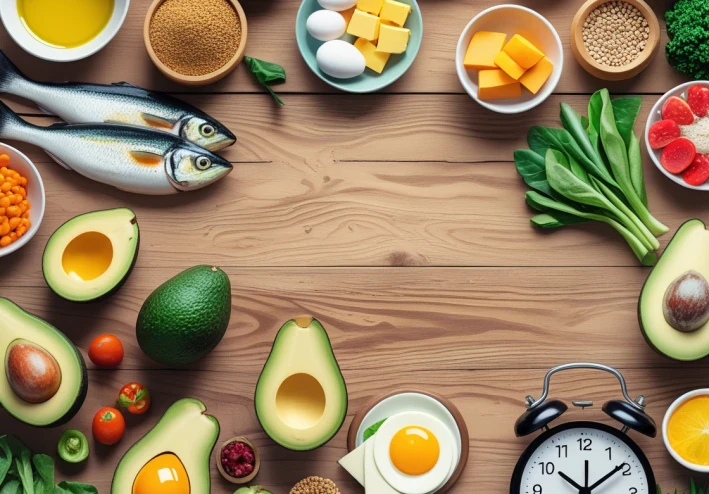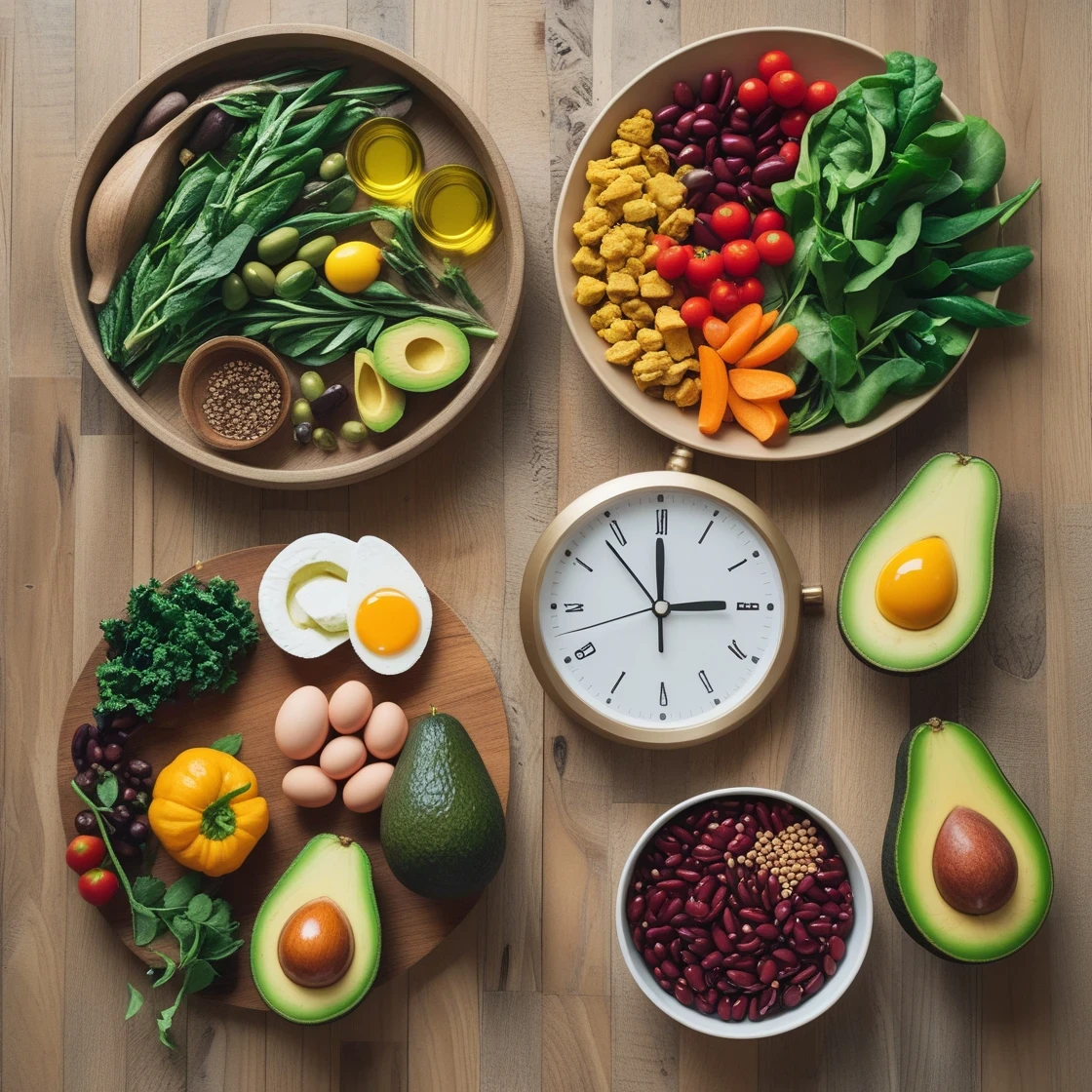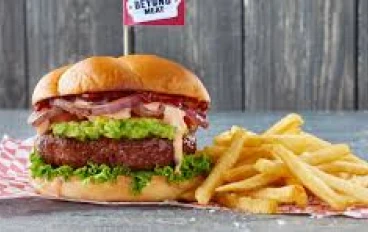
Choosing a Diet: How to Find the Right One Without Losing Your Mind
Choosing a Diet: How to Find the Right One Without Losing Your Mind
Introduction: The Eternal Battle with the Fridge
It’s 11:45 pm. You’re standing in front of the fridge, staring at a lonely slice of cheesecake. Your brain whispers: “Don’t do it, tomorrow you start your new diet.” But your stomach answers louder: “Life is short. Eat.”
Sound familiar? Yep. That’s the reality most of us live when it comes to choosing a diet. We want to lose weight, feel healthier, maybe even fit into those jeans from 2018… but every new “perfect diet” promises miracles and ends up leaving us either starving, cranky, or worse—ordering a pizza at 2 am.
So, how do you actually pick a diet that works? Not just for a week, not just for Instagram photos, but for you.
Let’s dig in—storytelling, science, and a little humor included.

Why Choosing a Diet is So Complicated
Here’s the thing: choosing a diet in 2025 feels like shopping in a giant online store with 10,000 five-star products—all claiming to be “the best.” Keto, intermittent fasting, paleo, vegan, Mediterranean, DASH, carnivore, juice cleanses, cabbage soup (yes, still alive)… the list is endless.
And yet, according to the CDC (2024 update), over 74% of U.S. adults are overweight or obese, and diet failure rates hover around 80–95% within the first year.
So, if diets work on paper, why do they fail in real life?
Because people pick diets that fight against their lifestyle.
Because we follow trends instead of science.
Because many diets are designed for short-term results, not long-term living.
Think of it like choosing shoes: if they look great but hurt your feet, you won’t wear them for long. Same with diets.
The Psychology Behind Choosing a Diet
A quick confession: the first time I tried intermittent fasting, I thought I was a genius. “I’ll just skip breakfast, and boom—six-pack abs in two weeks.” By day three, I was a zombie staring at my coworker’s sandwich like it was pure gold.
Lesson learned: choosing a diet isn’t just about “what’s healthy.” It’s about what fits your personality, habits, and lifestyle.
Ask yourself:
Are you a social eater? (Keto might feel restrictive at dinner parties.)
Do you hate cooking? (Mediterranean diet may overwhelm you with recipes.)
Do you love snacking? (Intermittent fasting might feel like torture.)
Choosing a diet is more psychology than biology. If your brain rejects the plan, your body won’t follow.
Popular Diets Explained (Pros & Cons with Stories)
Let’s break down some trending diets—not like a boring textbook, but as if we’re friends chatting at a café.
🥓 Keto Diet (Low-Carb, High-Fat)
The Idea: Cut carbs, eat fats, force your body into ketosis.
Pros: Rapid weight loss, great for reducing cravings.
Cons: Socially awkward (“Sorry, can’t eat your birthday cake”), risk of nutrient gaps.
Story: My friend Jake lost 15 pounds on keto… but also lost his patience at every family dinner. His line: “If I smell bread, I gain weight.”
🥗 Mediterranean Diet
The Idea: Lots of veggies, olive oil, fish, nuts, whole grains.
Pros: Heart-healthy, sustainable, backed by tons of research.
Cons: Requires planning, cooking, and grocery shopping.
Story: A colleague switched to Mediterranean, and not only did she lose weight, but she also started saying things like “I’ll drizzle some extra virgin olive oil on this.” Total vibe shift.
🕐 Intermittent Fasting (IF)
The Idea: Eat in time windows, fast the rest of the day.
Pros: Simple rules, no calorie counting.
Cons: Hangry mornings, tough for breakfast lovers.
Story: I lasted 10 days. The scale went down, but so did my patience. Snapped at my cat once. Still feel guilty.
🥩 Carnivore Diet
The Idea: Eat only meat, fish, and animal products.
Pros: Very simple.
Cons: Nutrient deficiency, risky long-term.
Story: A YouTuber I followed swore by carnivore. After three months, his energy dropped, and he said, “I miss broccoli.”
🍏 Plant-Based / Vegan Diet
The Idea: No animal products. Focus on plants, legumes, grains.
Pros: Ethical, eco-friendly, heart-healthy.
Cons: Protein planning required, social pressure.
Story: My cousin went vegan, lost 20 pounds, and suddenly became everyone’s nutrition lecturer at family dinners. Still love her though.
Benefits of Choosing the Right Diet
When you finally find the right one:
Energy Boost: No more post-lunch crashes.
Confidence: Fitting into clothes you love.
Mental Clarity: Diets affect mood and focus too.
Health Markers: Lower cholesterol, blood sugar, blood pressure.
And honestly? The best benefit is peace of mind. No guilt, no binge-guilt cycle, just balance.
Dangers of the Wrong Diet
Not all diets are rainbows and abs. Some can backfire badly:
Yo-Yo Effect: Lose 10 lbs, gain 15 back.
Nutrient Deficiency: Hair loss, fatigue, low immunity.
Mental Strain: Food anxiety, guilt, eating disorders.
Medical Risks: Extreme diets increase risk of gallstones, heart issues.
According to a Harvard Health review (2023), fad diets often increase dropout rates because people feel deprived, not empowered.
How to Choose a Diet (Step by Step)
Alright, practical time. Here’s my 5-step method:
1. Define Your Goal
Weight loss? Energy? Medical reasons? Be specific.
2. Know Your Lifestyle
Busy professional? Social eater? Gym rat?
3. Start Small
Don’t go all-in. Try a 2-week test.
4. Track Your Body & Mind
Weight, sleep, energy, mood. All matter.
5. Consult, Don’t Guess
Talk to a doctor or nutritionist. Your body isn’t a lab experiment.
👉 Tip: If the diet feels like punishment, it’s the wrong one.
Do’s & Don’ts (Quickfire List)
Do:
Drink water. A lot.
Prep meals ahead. Saves you from “fridge staring.”
Mix science with self-awareness.
Don’t:
Trust every TikTok trend.
Eliminate whole food groups forever (unless medically needed).
Compare your journey to others.
FAQ: Choosing a Diet
Q1: What’s the easiest diet for beginners?
Mediterranean or balanced calorie-counting. Flexible, not extreme.
Q2: Do I have to give up carbs?
Not unless you want to. Carbs = fuel. Focus on quality (whole grains, fruits).
Q3: Can I lose weight without exercise?
Yes, but slower. Exercise improves mood, metabolism, and long-term success.
Q4: Are diet apps helpful?
Definitely. Apps like MyFitnessPal or Cronometer help track without overthinking.
Q5: How long before I see results?
Usually 2–4 weeks. But focus on habits, not the scale.
Q6: Is intermittent fasting safe?
Mostly yes, but not for everyone (diabetics, pregnant women). Consult first.
Q7: What if I fail?
You didn’t fail. You just discovered what doesn’t fit. Adjust, don’t quit.
Famous Examples & Stories
Remember Adele’s massive transformation? She reportedly followed the Sirtfood Diet, focusing on foods that activate sirtuins (like kale, green tea, red wine). But here’s the twist: she admitted it wasn’t just the diet—it was exercise, mindset, and consistency.
Or take LeBron James, who once tried keto. He looked amazing but later admitted he added carbs back because energy dropped during training. Proof: even superstars adapt, not stick blindly.
Suggested Table: Diet Comparison
Diet Flexibility Weight Loss Speed Sustainability Risk Level Best For
Keto Low Fast Low-Medium High Quick results, carb-haters
Mediterranean High Moderate High Low Long-term health
Intermittent Fast Medium Moderate-Fast Medium Medium Busy lifestyles
Vegan/Plant-Based Medium Moderate High Medium Ethics + health
Carnivore Very Low Moderate Very Low High Extreme enthusiasts
Conclusion: Choosing a Diet is About You
So, what’s the secret to choosing a diet? Simple: stop searching for the best diet in the world and start searching for the best diet for you.
Your body is unique. Your life is unique. The right diet is the one you can live with, enjoy, and sustain—not just survive for 30 days.
👉 Start today. Pick one small change. Test it. Adjust it. And most importantly—don’t let food guilt ruin the joy of eating.
If this helped you, share it with a friend who’s still debating between keto and kale. And stick around—because the journey to health is a lot easier (and funnier) when we do it together.































